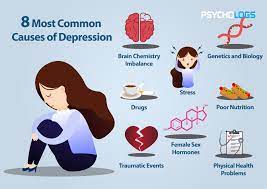The idea of a “chemical imbalance” has long been used to simplify mental health conditions for the public. It proposes that neurotransmitters—such as serotonin, dopamine, and norepinephrine—are out of balance, contributing to conditions like depression and anxiety. While neurotransmitters are indeed important in mood regulation, modern research shows that their role is far more complex than this simplified explanation.
Recent studies highlight that the causes of depression and anxiety are multifactorial, involving:
- Neuroinflammation and changes in brain structure
- Hormonal imbalances affecting mood and energy
- Disruptions in neural circuits and neurotransmitter signaling
- Genetic predispositions influencing mental health vulnerability
- Environmental, social, and psychological stressors
- Life experiences and past trauma
While the chemical imbalance theory has been criticized for oversimplifying mental health conditions, it does not mean that neurotransmitters are irrelevant. Medications such as SSRIs or other antidepressants targeting neurotransmitter pathways can be effective for many individuals. However, these medications may not address the root causes of the imbalance for everyone.
Comprehensive mental health care also includes psychotherapy, lifestyle modifications, optimal nutrition, and the judicious use of herbs and supplements. Addressing these underlying factors can improve mood, cognition, and overall wellbeing.
In summary, depression and anxiety are complex conditions influenced by an interplay of biological, psychological, and environmental factors. A holistic, personalised approach to treatment—combining lifestyle, nutrition, functional assessments, and therapeutic interventions—is essential for lasting mental health improvements.

